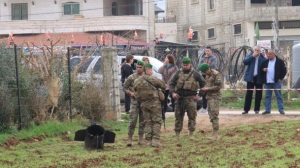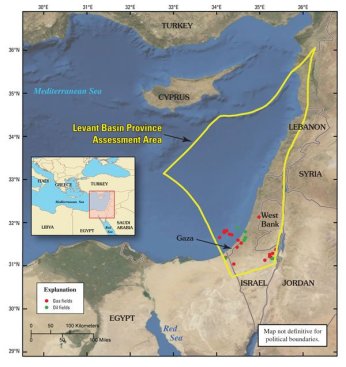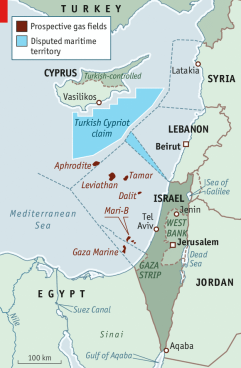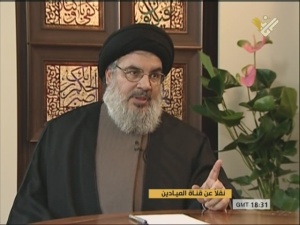
With developments happening at such a fast pace in Syria, who is doing what is an ever changing story. Here is Ghassan Kadi’s latest take.
http://thesaker.is/who-is-doing-what-in-syria-part-ii-syria-grabs-the-initiative/
https://www.zerohedge.com/news/2018-02-11/who-doing-what-whom-syria-and-why
Who is doing what in Syria, part II: Syria grabs the initiative
by Ghassan Kadi for the Saker Blog
In my previous article (http://thesaker.is/who-is-doing-what-in-syria-and-why/), I expressed my take on the highly unlikely possibility of an all-out war in Syria. As a matter of fact, I had been expressing this very same view for years, against all war-mongering theories that implied that America was just one step away from leveling Syria to the ground,
http://thesaker.is/war-on-syria-not-quite-according-to-plan-part-3-a-usa-unable-to-bomb-syria/
This is because I had always believed that Syria is not like any other nation that America has engaged in war with; Syria has rockets that can reach Israel, and this is in itself a deterrent that other nations did not have. If this reality formed the foundation of what became a solid alliance between Syria and Russia, then we should not be at all surprised.
To say that this deterrent has been as effective as otherwise Syria having a nuclear arsenal would not be an over-statement. And finally, President Assad himself has recently made it publically known, and for the first time from the horse’s mouth; not mine, that should American troops in Syria attack Syrian troops, then Syria will retaliate by attacking Israel:
http://www.addiyar.com/article/1496230-الرئيس-الاسد-سيضرب-اسرائيلاذا-ضربت-اميركا-الجيش-السوري
This serious announcement did not make news headlines in the West, as a matter of fact, it is very hard to find any evidence of it in the mainstream English press and even alternative media.
With all the above said, a “smaller” war seems more inevitable, but who is going to pull the first trigger and draw first blood? It will either have to be a madman asking for potential big trouble, or someone sure of his capabilities and knowing that should the fight escalate, he’ll be in a position of advantage.
If Netanyahu had the slightest hope in winning a relatively small confrontation with Syria, without allowing it to escalate into a big war, and if it did, he would turn it into a win, then there is no better timing for him to do it than now. After all, he is engulfed in corruption charges and Israelis are taking to the streets demanding his resignation. Nothing could save his face as much as a war, limited or otherwise, but one that he knows he could win. However, given the recent downing of an Israeli F-16 with a relatively archaic SAM-5, not to mention the thousands of rockets poised to be launched at Israel in such an event, this makes Netanyahu less likely to make such a gamble any more than a down-trodden bloodied boxer asking for a rematch before he recovers from his knockout.
The situation in the south of Syria therefore remains unchanged, and is likely to remain so, even if a limited war is to escalate in the north where American and Turkish troop have infringed illegally upon Syrian sovereignty.
However, the two hot spots are not totally unrelated as a direct escalation between Syrian and American forces WILL involve Israel as previously expressed.
So what are the Syrian troops doing moving into the American-held Syrian city of Manbij?
https://sputniknews.com/middleeast/201802251061966101-sdf-pass-territory-syrian-army/
Incidentally, just a few days ago, Syrian Army units entered the Syrian city of Afrin, and which has been under Turkish attack for a month or so, without any significant advances on the Turkish side. What is interesting here is that the people of Afrin welcomed the Syrian Army brandishing posters of both of President Assad and Kurdish leader Ocalan:
https://sputniknews.com/middleeast/201802231061920457-afrin-militia-rally-celebration/
Such scenes are pleasing for Syrians who seek national unity. After all, and regardless of what has been said in support of or against Syria’s Kurds, they are Syrian citizens, and they come from a lineage that is thousands of years old, and history has this fact well and truly documented.
By moving Syrian troops into Afrin and having them greeted in the manner that they have been, Syria is giving Erdogan a number of messages; one of which may knock some sense into him.
First of all, Syria is saying to Erdogan that Afrin is Syrian territory. Secondly, the people of Afrin are saying to Erdogan that they are loyal to Syria. In between the lines, Erdogan may see that Syrians are getting united, despite of their ethnicities, and if he pulls out without a fight, he may save himself a needless battle; because the union of Syrian people means that an independent Kurdish state is not on the agenda; or at least, not any more.
But the Syrian troops are also planning to move into the Syrian city of Manbij, and Manbij is not like Afrin, because in Manbij, there are American troops who did not pull out despite a formal Turkish request for them to do so:
https://www.haaretz.com/middle-east-news/top-u-s-general-says-no-manbij-troop-withdrawal-1.5770199
Turkey did not make any move towards Manbij after America’s refusal to pull out. Turkish troops are still bogged down in Afrin, unable to score any victory, hence unable to even think of deploying more forces or planning the next steps. But Syria is not asking the same of America; she has decided to deploy her troops and move in. After all, Manbij is Syrian territory and the American presence there is illegal and Syria does not need to seek America’s approval to move Syrian troops into Manbij anymore than America needs to seek Syrian approval for moving American troops into California.
We go back to the initial question. The party to pull the first trigger and draw first blood, even in a limited war, will either have to be a madman asking for big trouble and huge potential ramifications, or someone sure of his capabilities.
The way it seems, Syria has never been in a better position for a long time; despite all the damage and carnage and enormous human suffering.
We do not know what happens behind the scenes, and for the Syrian Government to be able to contain the Kurdish aspiration for separatism and be able to keep Syrian Kurds under the roof of Damascus, was never ever expected to be an easy task.
The Kurds who are separatists, and not all of them are, have played their game and failed. Without a crystal ball that sees what goes on behind the scenes within the closed doors of Kurdish elders, it seems clear that a consensus has been reached to dump the idea of separatism, endorse and welcome the Syrian Army, and stand up against the Turkish incursion in Afrin. The current presence of Syrian troops in Afrin and the welcome they received by the locals is a living testimony.
Has a similar deal been reached between the Kurdish elders and the Syrian Government regarding Manbij? The answer to this is most likely to be affirmative. Syrian troops will not enter Manbij to fight with its civilians. They will only move in after they have reached a level of national reconciliation that allows such a move and gives the troops the same welcome potential as the one they received in Afrin.
So what will happen to the American troops stationed in Manbij when Syrian troops move in?
The answer to this question will depend on the manner in which American troops respond to the advance to Syrian troops into Manbij that is illegally-held by American troops.
In brief, Syria is presenting herself, and seemingly for realistic on-ground reasons, to be in a position of solidarity, decisiveness and determination to impose her sovereignty on her entire territory.
In making those moves against the illegal presence of both Turkey and America on her soil, Syria is not in real terms asking for a fight with either Turkey or America. However, Syria is saying to both nations that Syrian territory is Syrian and should either Turkey or America stop Syrian troops or attack them as they exercise their legitimate and UN-endorsed right of Syrian sovereignty, and should either one of them attempt to stop Syria from implementing her rights, then Syria will have no other choice but push the intruders back, forcefully if needed.
Sadly, the US Government has had the history of responding to such similar moves in terms of body-bag count. And the post WW II human American toll has been borne by under-privileged young Americans. No one in his right mind within or outside the United States wants to see mothers of American soldiers, who joined the force in good faith, greet their sons and daughters back home in body bags.
If we cannot relate to the fears and apprehensions of those mothers, we cannot claim to be human. Whether those mothers understand the reality behind the wars their sons and daughters have been put into in order to fight is another story altogether, but in reality, the onus of the fate of their sons and daughters is on the decision makers of America.
Much has been said and written recently about sending American troops in Syria back home in body bags. I would rather see them walk back home after their leaders make the right decision.
The way it is in Syria however, American policy makers are putting American troops in harm’s way with odds that stack up against them unless their government decides to evacuate them, and soon.
America should look back at the Vietnam experience and leave Syria, now, and without any further delay. With or without Russian support, if all Syrians, including Syrian Kurds get united, and they seem to be doing so, America will lose all the local support base; a prelude for America to move out before it is too late.
In reality however, America has nothing to gain being in Syria, unless it is able to achieve a real strategic objective; something it currently lacks.
So who is doing what in Syria now?
America does not seem to know what it is doing, who is her ally and adversary.
The Kurds seem to have seen the light
The Syrian Government seems to have established a Damascus-based umbrella for the main Kurdish issue.
Turkey is unable to achieve any military objectives and in the absence of a plan for a Kurdish state, Turkey will no longer “need” to be in Syria fighting Kurds. And last but not least, should America dig its heels in and refuse to leave Syria peacefully and engage militarily with the Syrian Army, not only they are poised to lose, but the heat will move south and Israel will pay the price.
In Portuguese
http://www.orientemidia.org/quem-faz-o-que-na-siria-22-siria-assume-a-iniciativa/?fbclid=IwAR2gpj-l5VFHrCkpFNzUTFdM_j-9mdHIrBsfWz28674aQi_62EPHdcjGLEE





